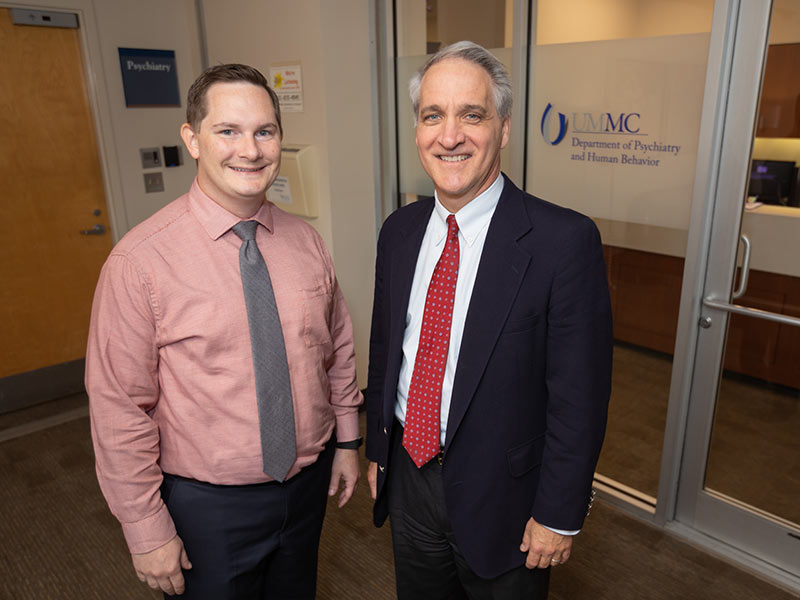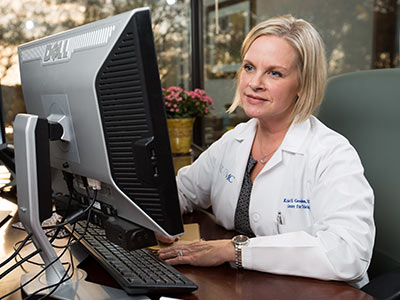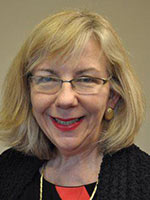Mental health access hotline gets $2.3M HRSA grant

A child visiting a physician in Mississippi could have behavioral health issues, but the nearest mental health professional might be hours away.
Thanks to a new pilot project, the distance between a patient and a pediatric mental health professional will soon shortened to a call and a few clicks.
The Mississippi Department of Mental Health and the University of Mississippi Medical Center are working to bring a regional telehealth consultation service for children in areas of the state that are medically underserved. The five-year, $2.23 million project is funded by a federal cooperative agreement through the Health Resources and Services Administration.
“This will be a telehealth hotline for physicians,” said Dr. Dustin Sarver, assistant professor of pediatrics and a clinical child psychologist. “CHAMP (Child Access to Mental Health and Psychiatry) will enable primary care providers to have rapid access to specialists in psychiatry, which will help bridge key geographic and access barriers experienced by physicians and families in our state. Instead of waiting for an appointment with a mental health professional and then traveling what could be hours for some families in the state, a child’s primary care provider can call us. Within 30 minutes, a UMMC mental health professional will be available through telehealth to consult with their physician to help that child and family.”
A care coordinator will also be available to help provide information to families and providers on how to navigate related mental health referrals.

CHAMP will establish a multidisciplinary UMMC team including child and adolescent psychiatrists and psychologists, nurse practitioners, a care coordinator and, through a partnership with Families as Allies, a family partner advocate. The team will provide those consultations for screening, medication management, diagnosis, treatment, care coordination and referral through UMMC’s Center for Telehealth.
The program, to be implemented through the UMMC Department of Psychiatry and Human Behavior, will focus on central Mississippi and the Mississippi Delta, covering 24 counties in the state.
Sandra Parks, director of the Department of Mental Health’s Division of Children and Youth and the project’s principal investigator, sees this as a way for more families to access children’s mental health services.
“We are excited about this opportunity to help make sure children and youth can access the behavioral health services and support they may need,” Parks said. “We are thankful for the University of Mississippi Medical Center for their work in establishing this program, which will enable support for mental health issues with providers in some of the areas where it is needed most.”
Sarver and Dr. Philip Merideth, professor of psychiatry and director of the UMMC Division of Child Psychiatry, are co-principal investigators for CHAMP.
The need for a greater level of pediatric mental health care is evident, Merideth said. Mississippi has the lowest number of psychiatrists per capita in the nation and the third lowest ratio of behavioral health professionals to primary care providers. Of Mississippi’s 82 counties, 45 do not have a single practicing psychiatrist or psychologist.
Through CHAMP, the team will be able to reach an estimated 250,000 children, by offering consultations to their primary care providers regarding issues such as ADHD, behavioral problems, mood disorders and other conditions.
“By getting the mental health care they need, these children will be able to live healthier lives and reach their full potential,” Merideth said. “Getting this care can change lives today and create a more positive future for the children of Mississippi and their families.”
Joy Hogge, executive director of Families as Allies, said the group is excited about CHAMP and what it will mean for families and caregivers of children who have mental health challenges.

“CHAMP is doing something that many of our parents have told us they want,” Hogge said. “Data we have gathered show that families want services close to where their children are and in familiar surroundings.”
Providing needed mental health care close to home can help more families get the consultations they need, Sarver said.
“We believe the project will ultimately improve the mental health and well-being of children and families,” he said, “and we eventually hope to scale the program across the state.”

